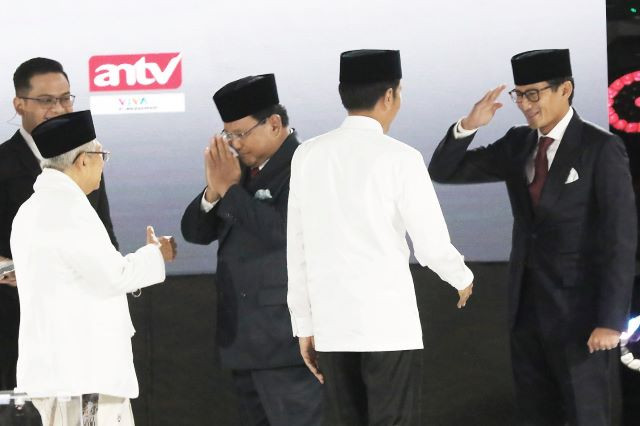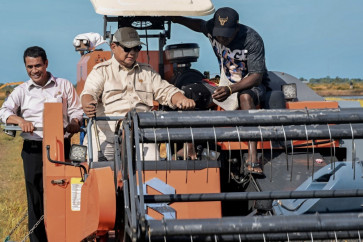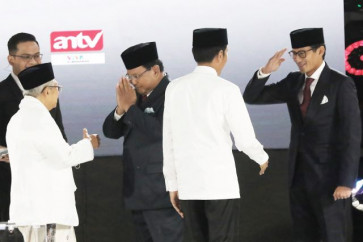Popular Reads
Top Results
Can't find what you're looking for?
View all search resultsPopular Reads
Top Results
Can't find what you're looking for?
View all search resultsWhy a three-horse race is a better for Indonesian democracy
One could ask, in a provocative way, why not reduce the choice from two to only one candidate pair that satisfies the ambitions of all political parties.
Change text size
Gift Premium Articles
to Anyone

One month before Indonesia’s presidential election final registration deadline, it is still not yet clear who will be running for the presidency. So far, it seems that Ganjar Pranowo, Prabowo Subianto and Anies Baswedan will be the candidates. Two weeks ago, however, speculation arose that Ganjar and Prabowo would run together on a single ticket.
Puan Maharani, deputy chair of the Indonesian Democratic Party of Struggle (PDI-P), said that the party, and her mother, PDI-P chairwoman Megawati Soekarnoputri, would closely monitor the country’s political dynamics and then decide on the party’s choice for a vice-presidential candidate. She added that a Ganjar-Prabowo pairing could deliver the best outcomes for the country. Ganjar himself said that anything could happen.
The Indonesian media and the public started a broad debate about the possible consequences of such a move. One aspect was mostly missing, however. A Ganjar-Prabowo pairing would reduce the competition, resulting in a presidential race between only two contenders.
A two-horse race already took place in the 2014 and 2019 presidential elections. Both times, Joko “Jokowi” Widodo from the PDI-P competed against Gerindra’s Prabowo. Both election campaigns were characterized by an unusually high degree of polarization between the supporters of both contenders.
In fact, nearly all politicians and political parties are pragmatic and driven by ideologies. In the last two elections, divisions between an Islamic and a nationalistic camp, however, became clearly visible. This unhealthy rift between the Islamic camp (then represented by Prabowo) and the nationalist camp (represented by Jokowi) caused widespread conflict before and after the elections. Families, villages and the nation were split into these two camps, often vigorously attacking each other, particularly on social media.
A 2024 presidential election with three participants could contribute to a much lower degree of polarization and political unrest among the supporter groups. If, however, there are only two contenders, people may view the Prabowo/Ganjar and Anies/Ganjar teams as the representatives of the nationalist camp and Islamic camp, respectively.

Another aspect that should be considered is that a reduction of presidential candidates from three to two means less options for voters. There are not many democratic countries that have such a low number of candidates.


















